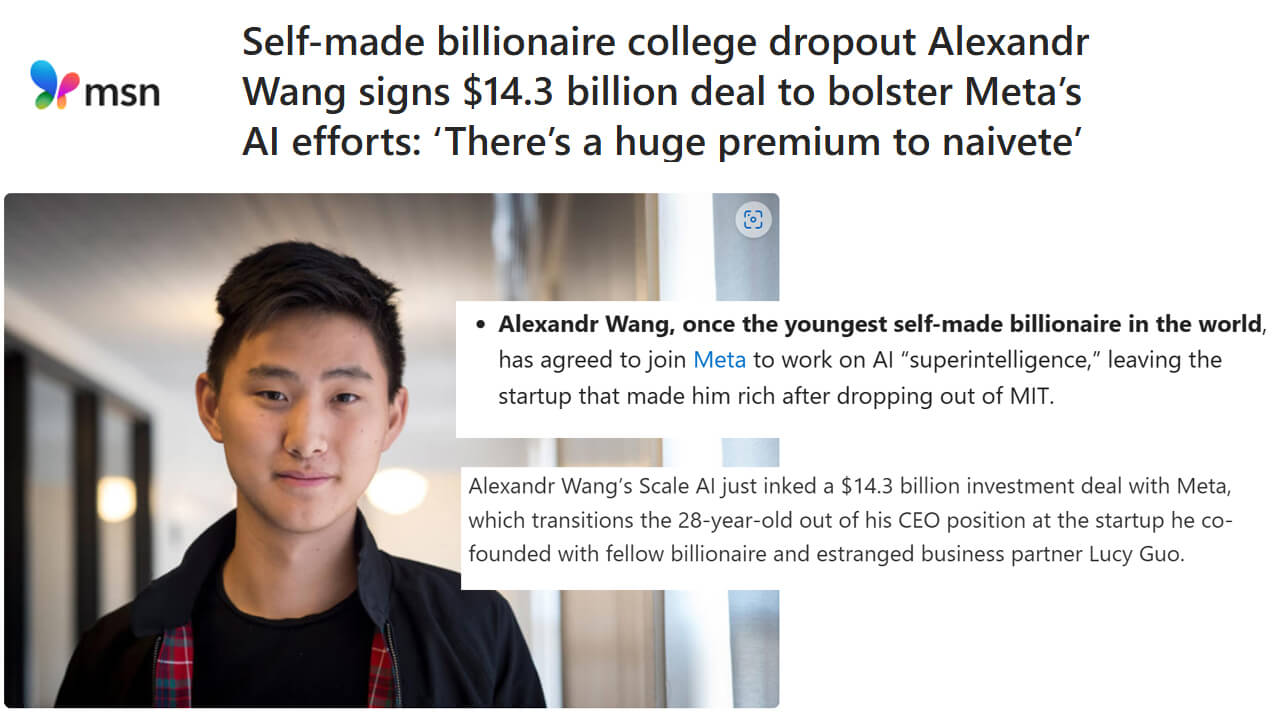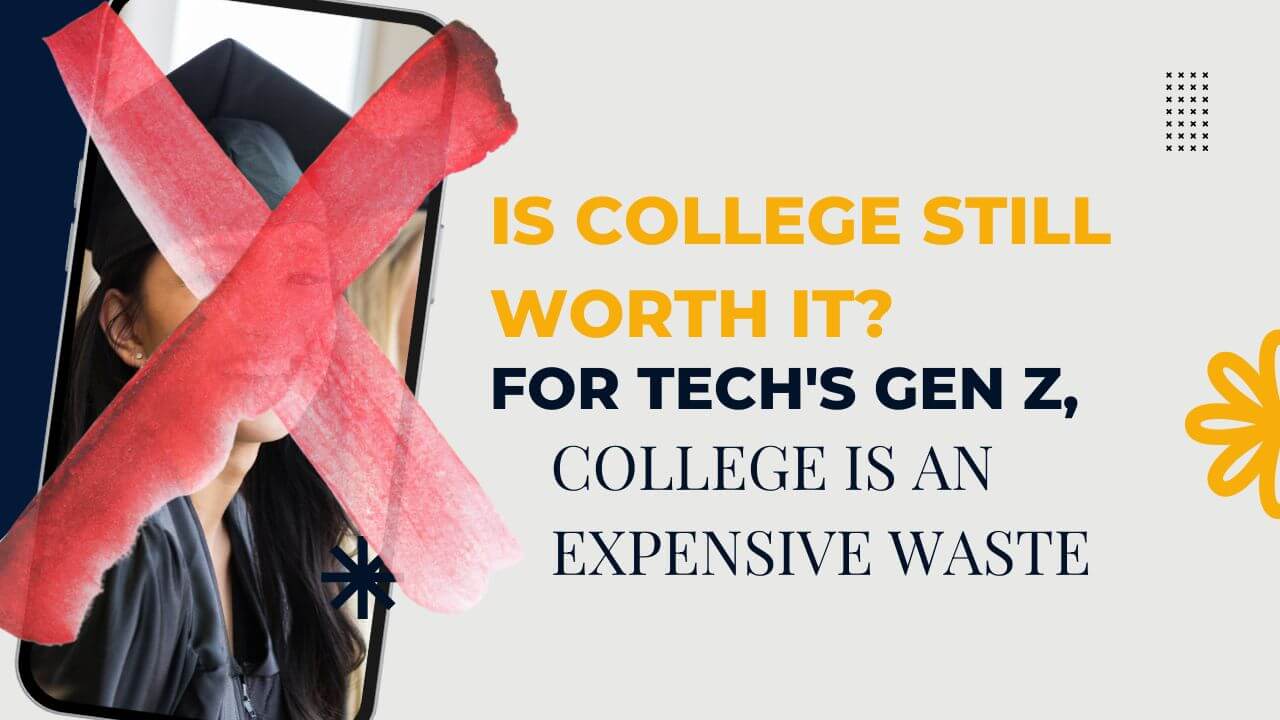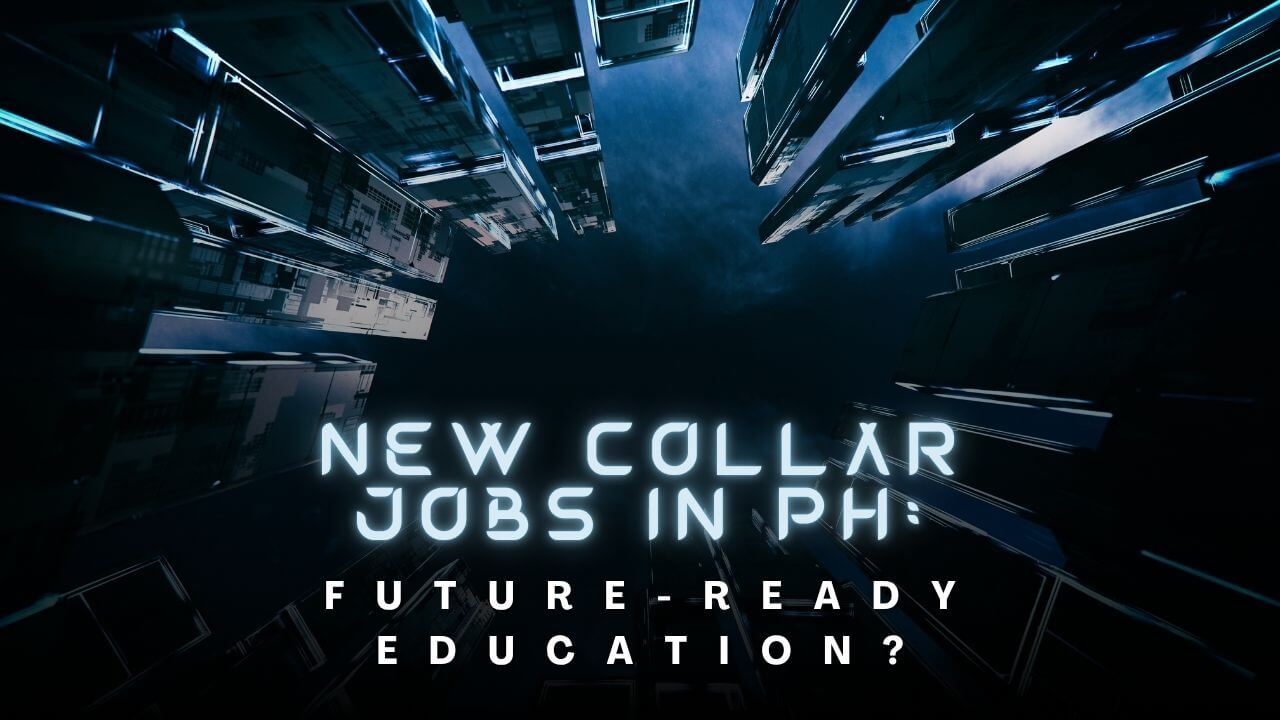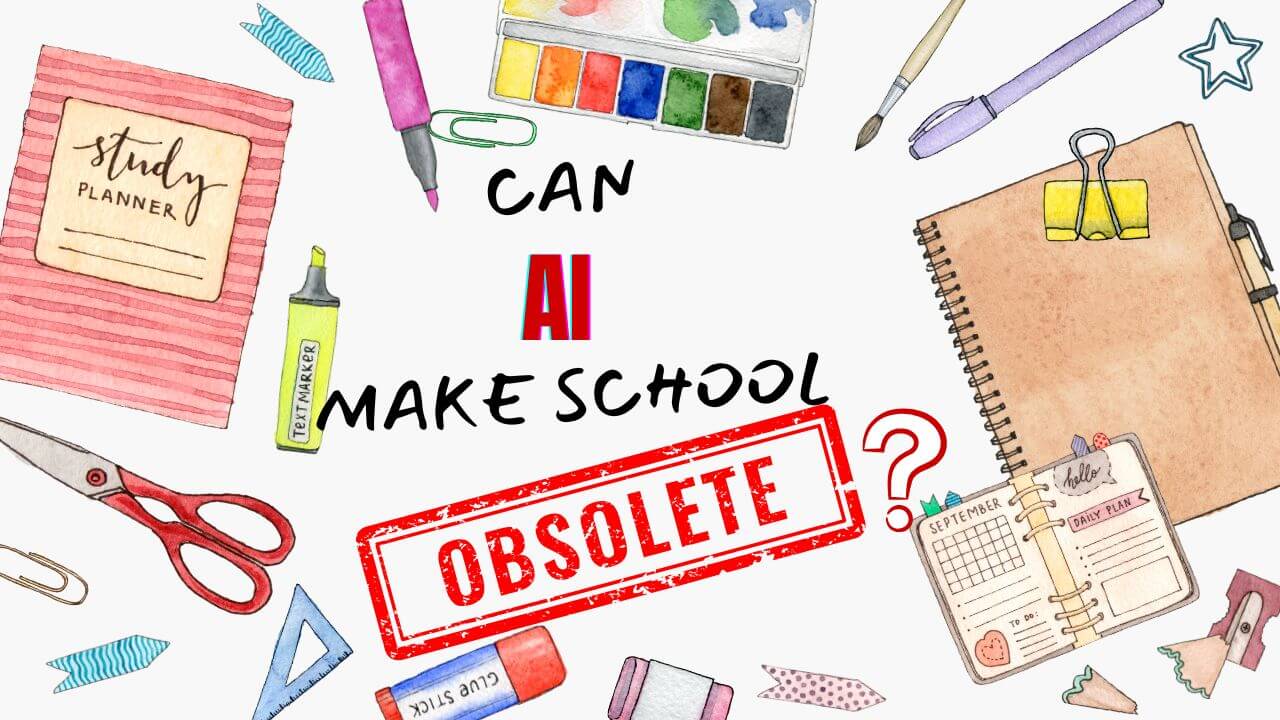How AI is Redefining Success in an Era Where Naivete Can Command a Premium
An Unconventional Success Story
In a striking illustration of today’s evolving paradigm of success, self-made billionaire college dropout Alexandr Wang recently signed a $14.3 billion deal with Meta to bolster its AI efforts—a move that underscores his belief that “there’s a huge premium to naivete”. Once hailed as the youngest self-made billionaire, Wang’s journey defies the long-held assumption that a traditional degree is the only route to success. His story challenges us to rethink our established ideas: not all graduates succeed, and not all dropouts fail.
Rethinking the Value of Education
In an era when disruptive innovation is rewriting the rules, the conventional wisdom that education guarantees prosperity is under increasing scrutiny. Many young Filipino tech founders, as discussed in our article “Is College Still Worth It? What Gen Z Tech Founders and Filipino Learners Are Starting to Believe,” argue that the rapid pace of technological change demands agility and real-world skills—qualities that often emerge well outside the traditional academic setting.
Similarly, the rise of new collar jobs, as detailed in “New Collar Jobs in the Philippines: Education Readiness,” reveals that employers are increasingly valuing practical expertise, technical know-how, and continuous learning over a standard degree. In this environment, the conventional path of college may no longer provide the safeguard or guarantee of future success it once did.
Beyond Credentials: The Limits of Education and Faith
It’s not just formal education that fails to secure one’s future in these turbulent times—even religious and social teachings can fall short. As we explored in “Social Awareness: Education & Faith Don’t Make a Good Neighbor,” knowledge—whether academic or spiritual—does not automatically lead to better decisions or greater success. The reality is that while degrees and church attendance offer structure and community values, they aren’t foolproof measures of one’s ability to thrive in an ever-changing world. This is a poignant reminder that success in today’s digital economy requires much more than credentials—it demands adaptability, innovation, and an openness to new ways of thinking.
The AI Advantage: Fueling a New Era of Opportunity
At the heart of this transformation is the power of AI. While traditional pathways may offer a blueprint for success, the relentless drive for innovation in AI is creating opportunities that bypass old paradigms. From automating mundane tasks to offering new tools for entrepreneurs and businesses alike, AI is setting the stage for a revolution in how we work and live.
Alexandr Wang’s ascent—despite, or perhaps because of, his dropout status—epitomizes this shift. His willingness to challenge conventional wisdom and embrace an unorthodox path has allowed him to thrive in an era where the power of AI can redefine productivity and success. Now more than ever, it’s clear that the future leans toward those who harness technology to overcome traditional limitations.
Bridging the Gap Between Tradition and Innovation
The future of education isn’t defined by choosing between traditional schooling and AI-driven learning—it’s about integrating the best of both worlds. Traditional institutions have long provided a framework grounded in interpersonal interactions and time-tested methodologies. However, as discussed in “AI vs. Traditional Schooling: Future of Education,” the rapid evolution of artificial intelligence is revolutionizing how we learn by offering personalized, adaptive experiences tailored to each student’s unique pace and interests. By blending the structured support of conventional education with the adaptable, data-driven insights that AI provides, educators can foster a more inclusive and engaging learning environment—one that prepares learners for an unpredictable, technology-centered future. This hybrid approach challenges old assumptions and equips us to thrive in a world where both academic credentials and innovative adaptability are valued.
Conclusion: Embracing AI to Succeed in a New World
In today’s rapidly shifting landscape, it’s evident that success is no longer dictated solely by academic credentials or inherited faith. Instead, it is defined by the ability to adapt, innovate, and leverage powerful tools like AI. Whether you’re a graduate, a dropout, or somewhere in between, the key lies in continuously learning and embracing new opportunities.
For Filipinos in particular, where traditional educational paths have long been the standard, the rise of AI offers both a challenge and a chance. As the global economy evolves, those who can integrate AI’s transformative power into their personal and professional lives will find new avenues to prosper, even as old measures of success fade. In this uncharted territory of the digital era, remember: success belongs not to those who follow a set path, but to those who create their own—and in a world powered by AI, the possibilities are endless.
Sources:
- [1]: MSN News – “Self-made billionaire college dropout Alexandr Wang signs $14.3 billion deal to bolster Meta’s AI efforts: ‘There’s a huge premium to naivete’”
- [2]: “Is College Still Worth It? What Gen Z Tech Founders and Filipino Learners Are Starting to Believe” – AIWhyLive.com
- [3]: “New Collar Jobs in the Philippines: Education Readiness” – AIWhyLive.com
- [4]: “Social Awareness: Education & Faith Don’t Make a Good Neighbor” – AIWhyLive.com
This article underscores that as the power of AI continues to expand, it will redefine the nature of success, where practical skills, adaptive learning, and digital ingenuity will matter more than ever.







